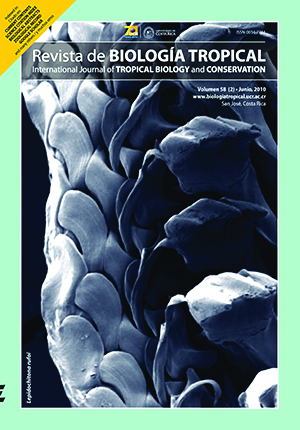Abstract
Fatty acids have been successfully used to trace the transfer of organic matter in coastal and estuarine food webs. To delineate these web connections, fatty acid profiles were analyzed in species of microbes (Azotobacter vinelandii, and Lactobacillus xylosus), prawns (Metapenaeus monoceros and Macrobrachium rosenbergii) and finfish (Mugil cephalus), that are associated with decomposing leaves of two mangrove species, Rhizophora apiculata and Avicennia marina. The fatty acids, except long chain fatty acids, exhibit changes during decomposition of mangrove leaves with a reduction of saturated fatty acids and an increase of monounsaturated fatty acids. The branched fatty acids are absent in undecomposed mangrove leaves, but present significantly in the decomposed leaves and in prawns and finfish, representing an important source for them. This revealed that the microbes are dominant producers that contribute significantly to the fishes and prawns in the mangrove ecosystem. This work has proved the fatty acid biomarkers as an effective tool for identifying the trophic interactions among dominant producers and consumers in this mangrove.##plugins.facebook.comentarios##

This work is licensed under a Creative Commons Attribution 4.0 International License.
Copyright (c) 2010 Revista de Biología Tropical
Downloads
Download data is not yet available.






